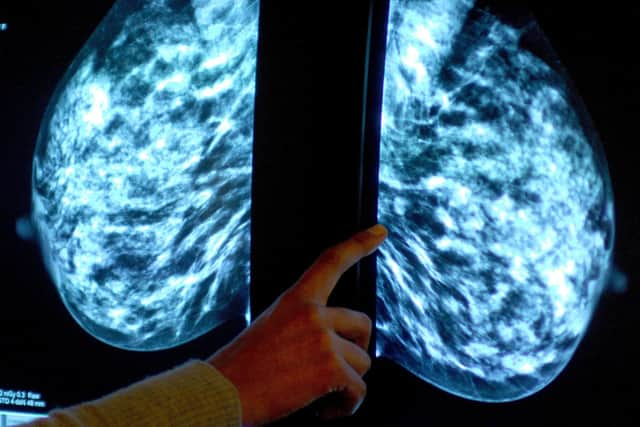First Minister says she's 'haunted' by Covid impact on cancer services
According to The Scottish Sun, 65-year-old Wilma Gifford, from Langside in Glasgow, has seen her untreated breast cancer spread after first contacting her doctor in February last year.
She said she had to push to be seen by an oncologist in September, but by December the cancer was also found in her brain.
Advertisement
Hide AdAdvertisement
Hide AdChallenged in Monday’s briefing on the decision to shut down cancer services at the height of the first wave of coronavirus last year, Ms Sturgeon said she wouldn’t comment on an individual case.


But she added: “My heart goes out to anyone who’s in that position and my thoughts are with her and anyone in a similar position.
"For the rest of my days I will worry about and agonise over and be haunted by the choices we’ve had to make in these unprecedented times we’re living in – choices we never wanted to make and I hope we’re never in that position again.”
Ms Sturgeon said the government had sought to prioritise “urgent care” during the pandemic, including cancer treatment.
She said: “And as we go through the pandemic, we try to get more of the non-Covid care back to normal, I never want to be in a situation were we have a national Covid service and not a national health service.
“That’s one of the reasons why we’ve had to, and continue to, live under these lockdown restrictions, because the more we can suppress and keep the virus to the lowest possible level the less Covid pressure we put on the NHS and the less interruptions and disruptions to other services we have to make.
"These are horrendous decisions and for those who’ve had delays to treatment over the last year, we can only imagine the trauma and stress and anxiety. The focus of the health service and government is to have as much treatment operating as normally as we can.”
Scotland’s chief nurse Fiona McQueen admitted it was “deeply distressing” to hear of Mrs Gifford’s case, but said there had been "clinical consensus” at the beginning of the pandemic “on stopping some forms of chemotherapy and treatment because it wasn’t known what impact that Covid would have on people undergoing these treatments”.
Advertisement
Hide AdAdvertisement
Hide AdShe said the NHS had learned through the pandemic that “more treatments than we originally thought can be offered”, but that as the health system was remobilised, those without life-threatening conditions would still have to “wait slightly longer as we prioritise urgent care”.
The First Minister also said long Covid was an issue “of significant concern”.
“It’s one of the reasons why we can’t be complacent even as the vaccine starts to reduce serious acute illness and death numbers, as in the younger population there’s still as a significant risk of long Covid,” she said.
“We’ve funded a number of research projects to look at the characteristics of long Covid, which is important before clinicians can work out what specialisms we need to have.”
A message from the Editor:Thank you for reading this article. We're more reliant on your support than ever as the shift in consumer habits brought about by Coronavirus impacts our advertisers.
If you haven't already, please consider supporting our trusted, fact-checked journalism by taking out a digital subscription.
Comments
Want to join the conversation? Please or to comment on this article.
